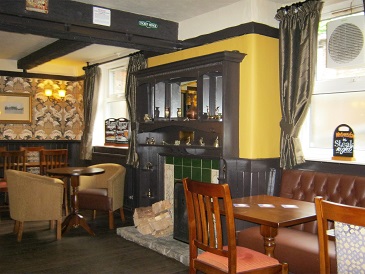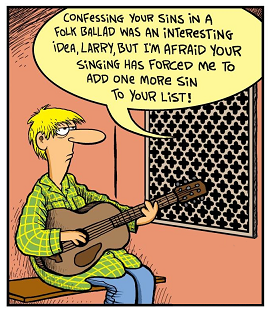 |
The root of all evil? The Sir Henry
Segrave, a Wetherspoons in Southport |
A couple of months ago I picked up the summer issue of
Ale Cry, the magazine of the CAMRA Central Lancs Branch. It's an interesting mag, and its layout and presentation are much better than a few years ago when, although the articles were okay, it looked like a badly-produced college rag mag. One article grabbed my attention, 'The Price Of Your Pint Revisited', written by the editor Adrian Smith - you can read the article concerned
here (on page 22).
The general thrust of the article is that we drinkers are reluctant to pay what he considers a fair price for real ale with the consequence that real ale may be "dumbed down" to save costs, or discontinued altogether. He makes some international comparisons, but comparing our beer prices with those in other countries is of little value unless you also compare average incomes, taxation levels, duty, and indeed all the many other factors that affect what we British drinkers pay.
He also has some scathing words for Wetherspoons and the vouchers that they give to CAMRA members, describing this membership benefit as CAMRA encouraging members to visit JDW pubs at the expense of traditional pubs, even though it is actually funded by Wetherspoons, not CAMRA. The value of the vouchers, £20 per year, equates to 39p per CAMRA member per week, not an amount, I would suggest, that would drive traditional pubs to close, especially as 99.7% of the UK population are not CAMRA members.
Many organisations have benefits for members provided by outside businesses; indeed, some of the membership benefits I am entitled to claim, in addition to those via CAMRA, come through my trade union, the National Trust, my railcard, my car breakdown service and even my folk club. Furthermore, there are 17 other companies that offer perks to CAMRA members, some of them in the beer and hospitality industries - but there's not a word in
Ale Cry bemoaning any of those. Besides, there is absolutely nothing to stop any other pubco making similar offers.
At this point I wondered whether I was beginning to detect the anti-Wetherspoons snobbery that, regrettably, some CAMRA members are prone to, a perception reinforced by a statement in the
Ale Cry article that, "Real ale on sale at £2.09 a pint is frankly ridiculous". Why? Wetherspoons are making a profit, so if they can afford to sell beer at such a price, why shouldn't they? Perhaps it's the perception of the clientele that Wetherspoons' prices are said to attract: people on benefits, parents with screaming brats running wild and pensioners drooling into their cheap meals, all of which shameful slanders - and more - I have read too many times (although not in the
Ale Cry article). I consider such generalisations about Wetherspoons clientele both inaccurate and disrespectful.
CAMRA says that avoiding isolation by going to the pub is a good thing, but without Wetherspoons, many people on low incomes could rarely, if ever, afford to go out for a pint; they would certainly have no chance of paying the price for real ale that Adrian Smith thinks they should.
I've written before about the price of beer, most recently in June 2018
here. One point I have made several times is that in 1972, a pint of bitter here in the north west was around 13p or 14p. Using the Bank of England inflation calculator, I learned that 14p back then is equivalent to £1.82 in 2018. In recent years, and especially since 2010, ordinary people's incomes have definitely not increased correspondingly. In real terms, beer is nowadays markedly dearer while many people's incomes are lower. It's logical to assume this is a significant reason why drinkers are reluctant to pay more for real ale, but the
Ale Cry article makes no mention if it.
A list of factors affecting pub usage, the level of beer prices in pubs and what people can afford would include (in no particular order):
- Beer taxes that over the years have risen by more than the rate of inflation, and which are among the highest in Europe.
- Excessive business rates (which, incidentally, are set by Whitehall, not councils).
- Pub companies overcharging their tenants for rent, supplies (including all drinks) and building maintenance.
- Rising costs for brewers (e.g. raw materials) and pubs (e.g. utility bills).
- Falling beer sales overall.
- Changes in drinking habits, with many young people preferring go to bars and clubs rather than traditional pubs.
- More choices of places to drink, such as bars, restaurants, hotels and clubs.
- Cheap drink in supermarkets.
- Sophisticated home entertainment systems.
- Austerity, leaving people with less cash and either unemployed or worried they might be.
- The increase in insecure employment, zero hours contracts, and minimum wage jobs.
- The smoking ban.
In the face of all this, it seems perverse and facile to criticise the drinker, and I am surprised that the editor of a drinkers' campaigning magazine does so. I did e-mail him a couple of months ago making some of these points but received no reply.
► For information, the Wetherspoons voucher scheme is currently being replaced.




















